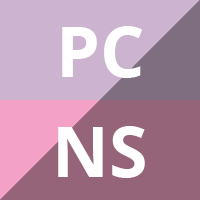
Admission avoidance hospital at home
Abstract Background Admission avoidance hospital at home provides active treatment by healthcare professionals in the patient’s home for a condition that otherwise would require acute hospital inpatient care, and always for a limited time period. This is the third update of the original review. Objectives To determine the effectiveness and cost of managing patients with […]

Hospital at home: home-based end of life care
Abstract Background The policy in a number of countries is to provide people with a terminal illness the choice of dying at home. This policy is supported by surveys indicating that the general public and people with a terminal illness would prefer to receive end-of-life care at home. This is the fourth update of the […]

Interventions to optimise prescribing for older people in care homes
Abstract Background There is a substantial body of evidence that prescribing for care home residents is suboptimal and requires improvement. Consequently, there is a need to identify effective interventions to optimise prescribing and resident outcomes in this context. This is an update of a previously published review (Alldred 2013). Objectives The objective of the review […]

Helicopter emergency medical services for adults with major trauma
Abstract Background Although helicopters are presently an integral part of trauma systems in most developed nations, previous reviews and studies to date have raised questions about which groups of traumatically injured people derive the greatest benefit. Objectives To determine if helicopter emergency medical services (HEMS) transport, compared with ground emergency medical services (GEMS) transport, is […]

Medical day hospital care for the older versus alternative forms of care
Abstract Background The proportion of the world’s population aged over 60 years is increasing. Therefore, there is a need to examine different methods of healthcare provision for this population. Medical day hospitals provide multidisciplinary health services to older people in one location. Objectives To examine the effectiveness of medical day hospitals for older people in […]

Interventions for enhancing medication adherence
Abstract Background People who are prescribed self administered medications typically take only about half their prescribed doses. Efforts to assist patients with adherence to medications might improve the benefits of prescribed medications. Objectives The primary objective of this review is to assess the effects of interventions intended to enhance patient adherence to prescribed medications for […]

Effectiveness of different nursing handover styles for ensuring continuity of information in hospitalised patients
Abstract Background An accurate handover of clinical information is of great importance to continuity and safety of care. If clinically relevant information is not shared accurately and in a timely manner it may lead to adverse events, delays in treatment and diagnosis, inappropriate treatment and omission of care. During the last decade the call for […]

Audio-visual presentation of information for informed consent for participation in clinical trials
Abstract Background Informed consent is a critical component of clinical research. Different methods of presenting information to potential participants of clinical trials may improve the informed consent process. Audio-visual interventions (presented, for example, on the Internet or on DVD) are one such method. We updated a 2008 review of the effects of these interventions for […]

Non-specialist health worker interventions for the care of mental, neurological and substance-abuse disorders in low- and middle-income countries
Abstract Background Many people with mental, neurological and substance-use disorders (MNS) do not receive health care. Non-specialist health workers (NSHWs) and other professionals with health roles (OPHRs) are a key strategy for closing the treatment gap. Objectives To assess the effect of NSHWs and OPHRs delivering MNS interventions in primary and community health care in […]

Continuous versus intermittent physiological monitoring for acute stroke
Abstract Background Explanations for the effectiveness of stroke units compared with general wards in reducing mortality, institutionalisation and dependence of people with stroke remain undetermined, and the discussion on the most effective stroke unit model is still up for debate. The intensity of non-invasive mechanical monitoring in many western countries is one of the main […]

